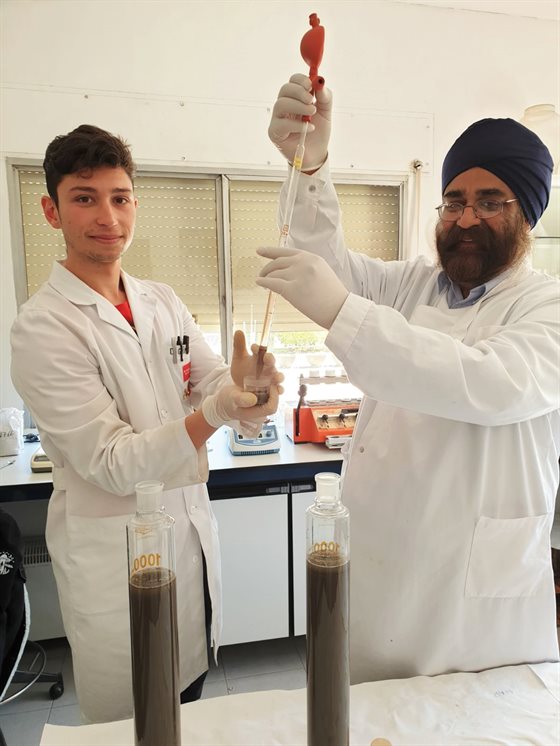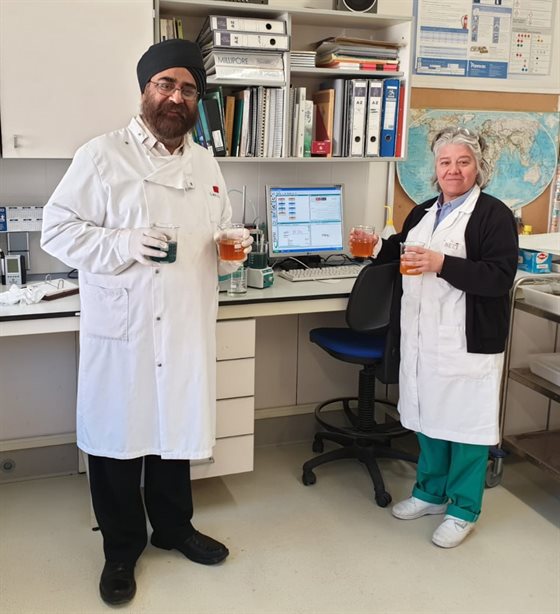A mature student at De Montfort University Leicester (DMU) says it’s “never too late to learn something new” after his own PhD studies led him to a world-leading science lab in Alcalá de Henares, Madrid.
Gurminder Jagdev was one of just 20 people to win funding through the #DMUglobal PhD Research Fellowship this year, which offers PhD students the opportunity to collaborate with overseas partner universities, charities and non-governmental organisations (NGOs) to enhance their research.

Gurminder – whose research is looking at the presence of metals in topsoil across Leicestershire and examining the potential risks to human health – travelled to the Madrid Institute of Agricultural and Food Rural Research and Development (IMIDRA) to work with scientists who specialise in identifying and treating contaminated soil, led by Dr Carmen Lobo Bedmar.
“I came to DMU because I wanted to learn something new,” said Gurminder, who works as an engineering manager in Leicester.
“Our urban environments are potentially being contaminated with metals such as lead and mercury, and exposure to these elements may negatively affect human health, as well as damage the environment.
“Even at low concentration these metals could be quite toxic so it’s really important to monitor them to identify potential risks and respond to them.”

As part of his PhD project, Gurminder spent five weeks at IMIDRA, assessing topsoil samples he had collected from different urban and rural areas across Leicestershire.
“My studies have been enhanced by the interactions I have had with my supervisors at DMU, Dr Antonio Peña-Fernández and Dr Mark D. Evans, and researchers at IMIDRA,” he said. “It was such an exciting opportunity to be able to go to Spain and learn from soil science experts.
“We looked at soil properties including composition (texture), pH level, electrical conductivity and the amount of organic matter in the samples. These are the features that can influence the presence, retention and distribution of metals in our soils, so this was a fundamental part of my research.”
RELATED NEWS
PhD students go to Spain to train in parasitology
PhD student awarded fellowship for her work in STEM
Could a tropical weed hold the key to cleaning up our rivers?
Back at DMU, Gurminder will now put what he has learnt into practice to further analyse his soil samples for metals.
“The results should give us a picture of the soil contamination in Leicestershire and whether we need to respond in order to protect the public,” he said. “This is novel research that has not really been explored in other urban areas in the UK, so it is exciting times for us in the lab.
“The techniques that I learnt at IMIDRA are transferrable and I hope to use the knowledge to improve our work at DMU.”
Dr Peña-Fernández, VC2020 senior lecturer in Biomedical and Medical Science at DMU, said: “This was a fantastic opportunity for Gurminder. Thanks to the #DMUglobal PhD Research Fellowship he was able to gain a better understanding of his own project and this will undoubtedly enhance the research work that we are doing.”
Posted on Friday 7 June 2019